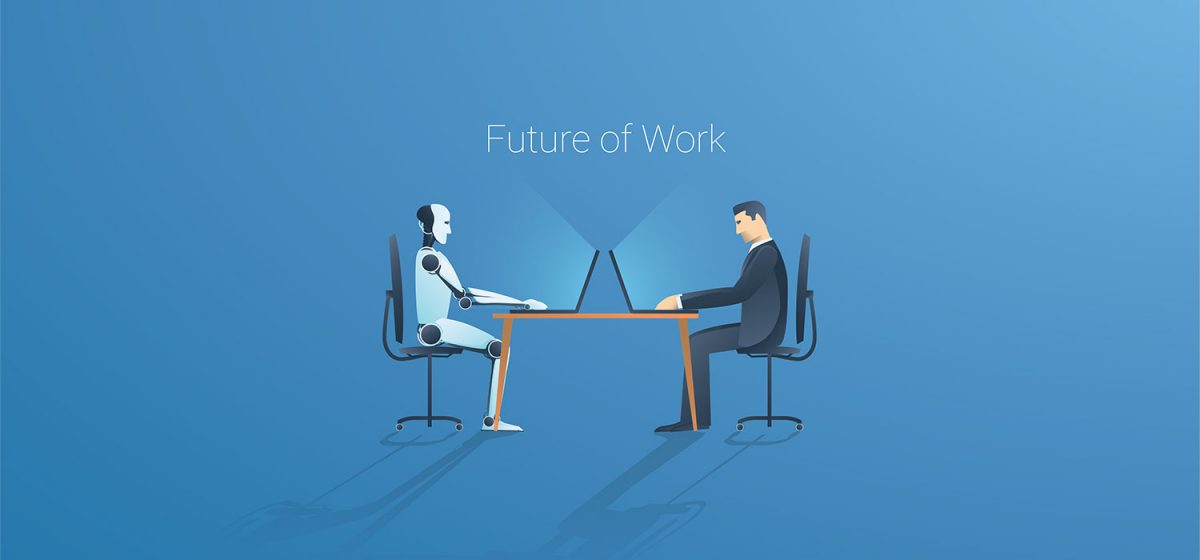Complex production steps are carried out solely by machines today. Construction robots that put entire houses together in test projects within a very short time, ATMs that have already resulted in numerous job cuts in the financial sector, robots that look for the right medication in pharmacies, and drones that transport packages. Machines are already doing a large part of the tasks that humans were used for just a few years ago. A trend that will continue and ensure that jobs are cut. That is undisputed. How many there will be, however, and how great the competition from machines will be, economists are divided.
Robots instead of humans?
The result of an Oxford study is that it should be half of all current jobs that are breaking away. As early as 2013, it caused a sensation with the conclusion that 47 percent of all jobs would be threatened in the next 20 years. The scientists referred to the US labor market. And yet the concern was also palpable in Germany. The Center for European Economic Research (ZEW), however, was able to appease something a year ago, in the summer of 2016. A study examined the risk of automation in workplaces in 21 OECD countries. The result: only nine percent of the jobs in these countries will be lost in the next 20 years. Shortly before that, the World Economic Forum in Davos had presented a study that said: In the next five years, five million jobs should be cut in the industrialized countries.
Competence of the future: flexibility
Even if the prognoses differ greatly and it is far from clear how many jobs are actually losing importance in the course of automation and digitization and will probably disappear completely from the job market as a result, one thing is undisputed: today’s employees must be prepared to To be able to assert oneself in the professional world of the future.

And one thing is particularly important: Be flexible. Because unlike a few decades ago, when you took up a position as an employee and may be worked in it until your retirement, you have to be prepared for constant change today.
These skills are particularly in demand for future-proof jobs:
- Transdisciplinarity: Expertise is important, but it is difficult for people who are exclusively familiar with their subject. Therefore, think outside the box and deal with aspects that go beyond the knowledge necessary for your job.
- Intercultural competence: We are already working on many projects with people from different cultures. An aspect that will continue to gain in importance in the future. Therefore, be open to working with different people from different countries. Further education institutions and intercultural trainers will make you fit in this regard. But also train your own stays abroad.
- digital competence: The safe and competent use of digital media is an important skill. Deal with the issues of data theft and cybersecurity. Take a critical look at the information that is brought to you via the Internet and social networks and gain media literacy. Also, deal with technical innovations and be open to digital media. If you are also familiar with the subject of programming, this is an additional, important plus. And very important: Always keep your knowledge up to date.
- Willingness to learn: In times of constant change, as an employee, you have to acquire new skills and deal with new topics. It doesn’t work without the willingness to learn and continuously develop. So be prepared for the fact that you will always think about new topics and acquire relevant knowledge in a short time.
- Ability to work in a team: One colleague is based in Mumbai, the other in New York. In the future, cooperation between international teams will become more important. Since face-to-face meetings are then difficult, arrangements and meetings have to take place over the Internet. So you should be familiar with the possibilities that the World Wide Web offers. At the same time, you should be open to working with people around the world. That also demands flexibility from you. Because while your colleague in Sydney is about to finish your day, your day is only just beginning. So you have to plan well with your team partners and make arrangements.
Because the world of work is developing faster and faster, you must not lose touch. Educate yourself further and don’t close yourself off to new things.


